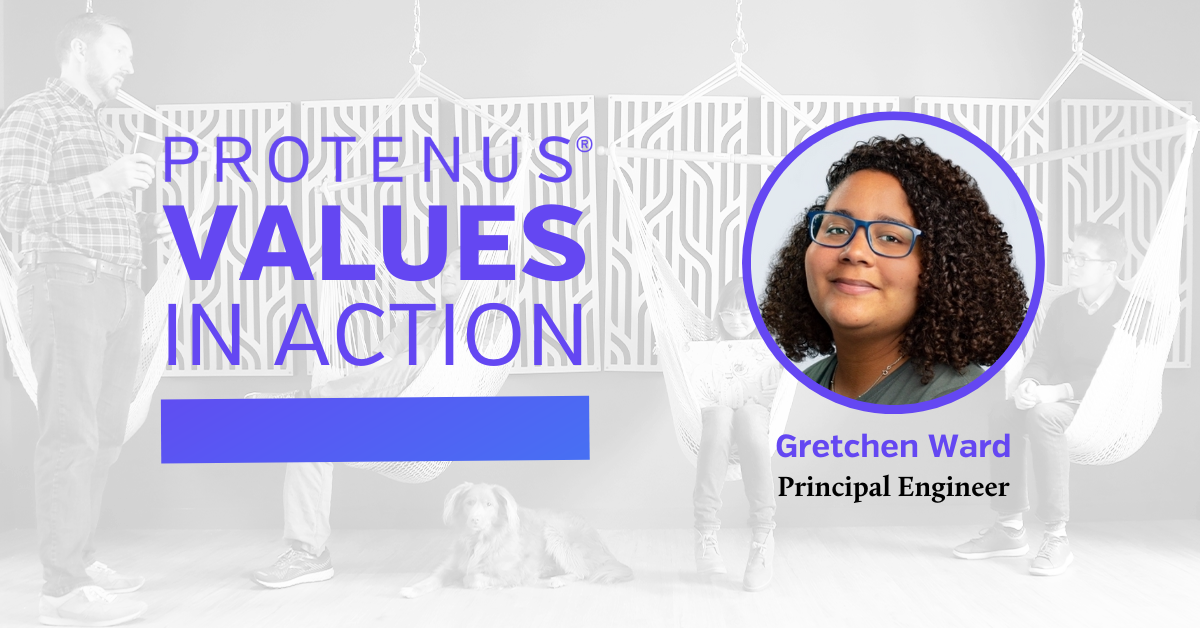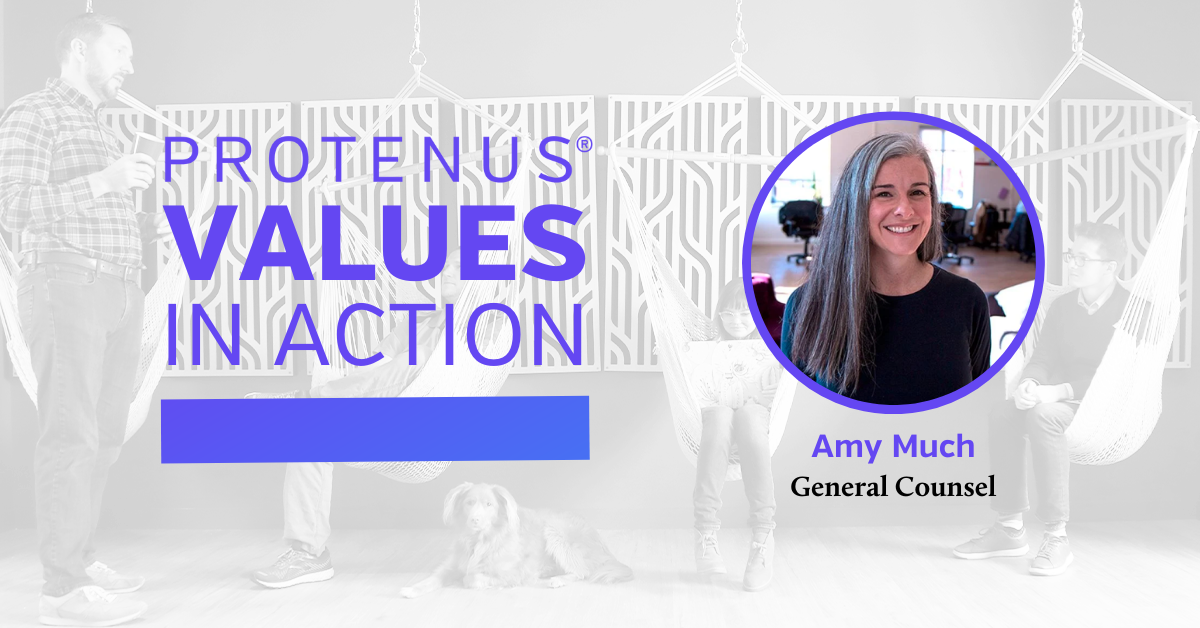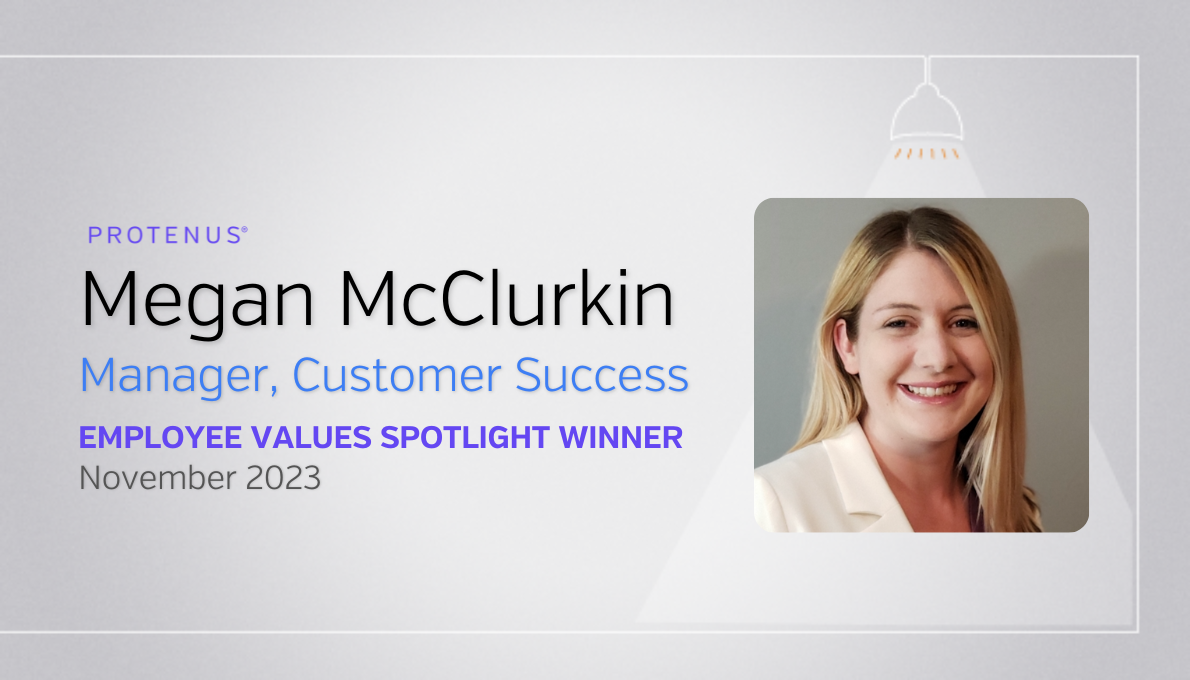Share this

Brian Tracey, Solutions Engineer
by Brian Tracey, Solutions Engineer, Protenus on Monday, May 11, 2020
Our mission at Protenus is to advance the science of healthcare by bringing together creative and skilled individuals who are passionate about the security, usability, and applicability of health data. As this information becomes more voluminous, comprehensive, and, as a consequence, more vulnerable, we are building scalable, insightful solutions that address critical issues preventing the efficient, safe, and effective delivery of patient care.
Our team is comprised of a diverse group of people who come together to achieve this shared mission. To give a glimpse into our culture and highlight the diversity of our team, we’ve asked Brian Tracey to share more about his experience working at Protenus.
What’s your role at Protenus, and what do you do?
As a solutions engineer, I handle all aspects of customer implementations, working directly with customers on problems that may stem from the files they send us or setting up the infrastructure for each customer. I also do the first round of testing and quality assurance to make sure the data we have is of a good quality and to be sure the customer receives good alerts. The key thing is to connect user data across the multiple streams of data that our customers send, whether it’s a unique identifier or other elements, however they send it. Some customers have great data governance and it’s just a matter of a properly formatted file. Other times, the data can be messy and we spend several hours trying to find what sticks and what matches up.
What did you do before coming to Protenus?
I was working as an administrator for the Peabody Institute, the music school that is part of Johns Hopkins University. I play several instruments: clarinet, piano, and organ. My grandfather was a music teacher, so when I was young, my parents started me on piano, and my grandfather gave me extra lessons. Then I picked up the clarinet for my school band. As a high school junior, I became serious about being a musician. In my home state of Pennsylvania, there’s a competitive honors ensemble program that I belonged to. The director, during my second year, was very inspiring and he convinced me to get a degree in music and to think of it as a possible career.
So my undergraduate degree is in music education and I have a teacher certification. But after a few years I realized that teaching wasn’t something I really enjoyed. Instead, I went to graduate school at Peabody because the teacher there was well known and the school itself has a reputation for providing quality teaching and experiences. My plan was to graduate and then go out and audition for orchestras.
As I was finishing my master’s degree, Peabody offered me a job working with the pre-college program scheduling performances, advising students, and managing scholarship awards. Meanwhile, I was still performing: I still play with two contemporary music ensembles in Baltimore, and a chamber orchestra in West Virginia.
I did that for two years, and in that time also met Alex Baca, who already worked at Protenus. Hearing him talk about his work reminded me that I enjoyed being in the world of technology--I had taught myself some coding basics while I was in high school. When he told me that Protenus was hiring for a project manager, I applied, and joined the company in August 2018. Along the way, I taught myself what I needed to do to join the tech team, which I did this March.
What initially attracted you to Protenus?
The sense that it was a collaborative place, that everyone wanted to work together, and to help each other out. I felt that there was a strong sense of purpose, that people worked with goals in mind, not just selling something to make money, but also to improve the industry, to help people, and do the right thing. I also liked the friendly nature of the team. I had been to the office a couple times to play board games with everyone, so I had a sense of the friendship and community. And I knew from Alex that team members could try new things and grow professionally, too.
What’s your favorite part of your job?
I love identifying a problem and fixing things that may be broken. I tend to think of my work here as the polar opposite of music. As a musician, I spend hours and hours of practice preparing for a performance. You get very in depth with a piece and every aspect of it. As a musician there’s a sense that nothing is ever done -- you perform a piece but you rethink it and interpret it differently over time. What I like at Protenus is that I can analyze a problem, figure it out, and solve it.
What’s the most important thing you’ve learned since starting at Protenus?
The essential nature of having other people to help you do your job well. All of the different people who get involved with the customers are really essential. No one person could do everything that needs to be done. There are the customer success managers who have industry expertise and compliance experience; privacy engineers with best practices recommendations and who sometimes even become part of the customer’s compliance team; project managers who make sure everything happens on time; and then people like me who work with data, get it set up, troubleshoot and fix it. It’s made me realize how critical it is to have cross-functional teams.
How has working at Protenus affected your career?
It’s completely reshaped the way I think about my career. Two years ago my goals were to win a job playing in an orchestra and do private teaching on the side. Now I have a whole other area of my career I can focus on. Some people might think I’m biting off more than I can chew--I still go out and audition for orchestras, but the culture of Protenus is what allows me to do both.
(In this YouTube, I play clarinet with other musicians worldwide in a March 29, 2020 tribute to victims of the global pandemic.)
What has surprised you the most about working at Protenus?
The balance in terms of experience and ages of our team members. People tend to think startups and early stage companies are a bunch of 20 and 30 somethings throwing ideas at a wall. But we have people of all experiences and ages--so it’s more calm. It’s great for young people who have older people to provide mentorship and guidance. That really surprised me with my preconceived notions of what a tech startup would be.
In 10 words or less, how would you describe the culture at Protenus?
Friendly, collaborative, intense, and challenging (in the right ways).
View our Careers page, if you’d like to see current job opportunities at Protenus.
Share this
You May Also Like

Gretchen Ward, Principal Engineer

Amy Much, General Counsel


